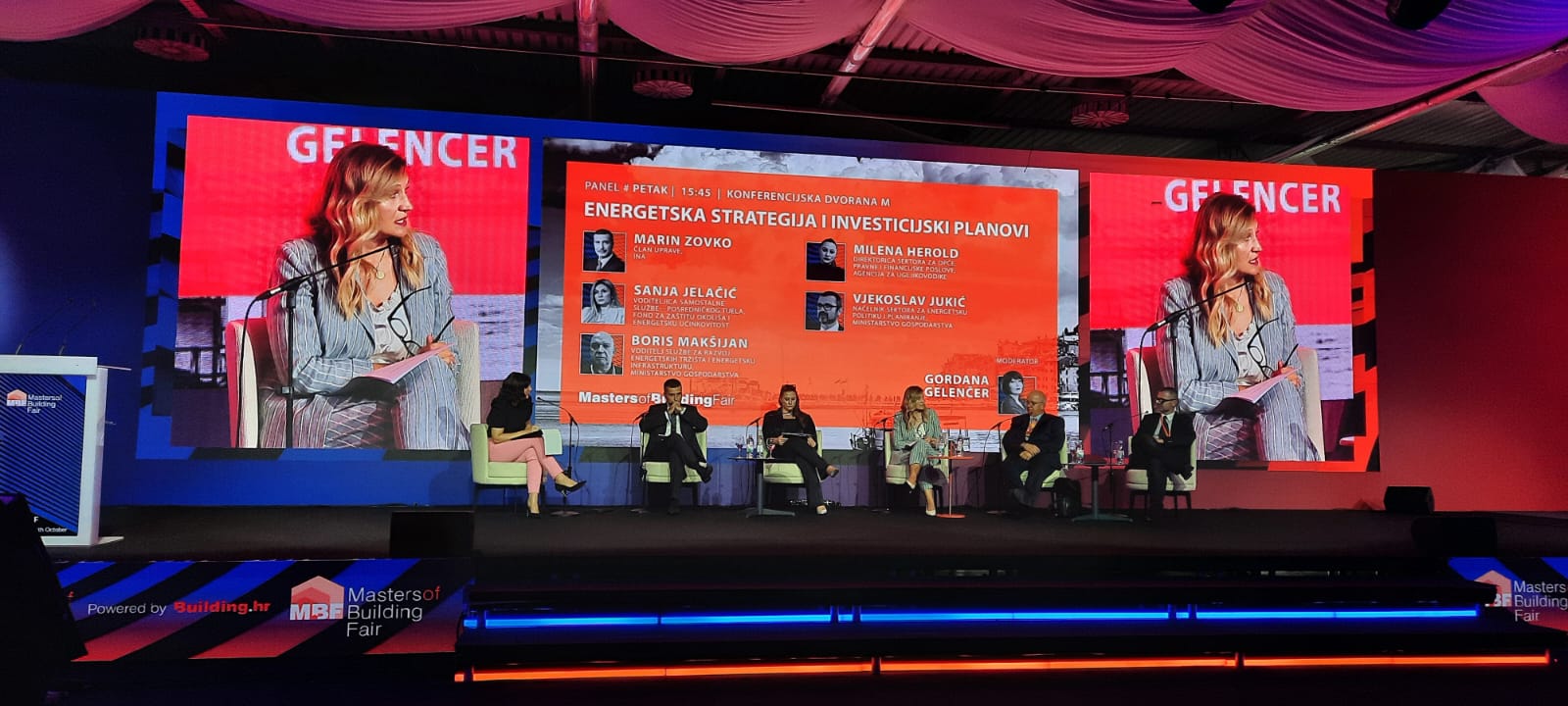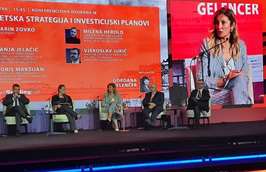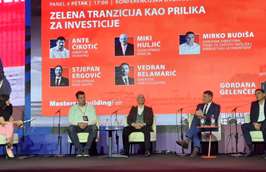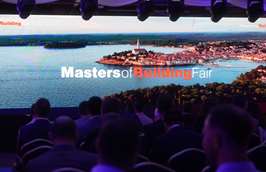17.10.2024.
A three-day Masters of Building Fair was held in Rovinj, where the Fund's experts spoke about the green transition, energy renovation, as well as about significant infrastructure energy projects financed from European sources.At the panel “Green Transition as an Investment Opportunity”, deputy director of the Fund Mirko Budiša pointed out that during this year the Fund had allocated around 320 million euros to the public sector, companies and citizens, and announced that a similar amount of incentives was planned for the next year. “We are all aware that green transition is costly, and that additional investments are very important. Companies have significant resources available, of which I’d like to underline the Modernisation Fund, through which 42.2 million euros in grant funding have been allocated over the last two years for 161 RES projects,“ said Budiša, adding that these investments contributed to the national renewable energy goals giving an impetus to companies to work on their sustainability and, more importantly, self-sufficiency in the production of energy, without which today’s business is absolutely inconceivable.
He pointed out the energy renovation scheme was one of the Fund’s most well-known programmes, for which this year a record EUR 120 million were provided, and the programme was planned to continue. If the calls for the renovation of the public sector and apartment buildings, and remediation of the aftermath of the earthquake are added to this, it is evident that the construction sector will be very busy in the upcoming period. Budiša also mentioned the green infrastructure projects for which the Fund had allocated resources and was currently providing technical assistance to local units that were preparing those projects for EU co-financing. “The current cost of investing in climate change adaptation measures will reduce several times the cost of repairing possible damage in the future. By cultivating, for example, urban greenery, we can significantly reduce the impact of heat islands in cities and, at the same time, provide a better infrastructure in case of extreme weather; and we will most certainly help reshape n the cities tailored to people,” believes Budiša.
As part of the Energy Strategy and Investment Plans panel, the head of Intermediate Body at the Fund, Sanja Jelačić, emphasised that the issue of energy independence had become more important than ever before. "The Fund's Intermediate Body currently controls and manages more than 3,000 projects financed from EU sources, with the value of grant funding of about 4.5 billion euros. Among them are some of the largest energy investments, projects that are extremely complex both in terms of implementation, and control and monitoring. One of them is the Plinacro project intended to strengthen the gas infrastructure, for which over half a billion euros have been provided from the NRRP, and there is also the modernisation of the Croatian power transmission grid implemented by HOPS and HEP, for which EUR 218 million have been provided from EU funds," said Jelačić, adding that along with infrastructure, the use of RES was also being intensively promoted. Through the Operational Programme Competitiveness and Cohesion and the National Recovery and Resilience Plan, companies have been granted about 400 million euros for investments in energy efficiency and the use of renewable energy sources.
When asked about the situation regarding waste, Jelačić reminded that in the last few years, the state had provided more than half a billion euros in grants for landfill remediation, as well as for the construction of civic amenity sites, composting plants, sorting plants and construction waste recycling plants. "All these investments have affected the rates of separately collected waste , which increase year on year. We are currently at 48% and, of course, we’re expecting more growth. In addition, Croatia has one of the better regulated systems of management of special categories of waste, and owing to it we collect and recycle over 85% of these types of waste."











